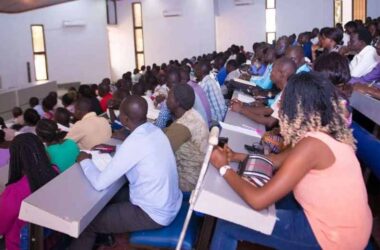By Philip Buda Ladu
A spiraling Cholera outbreak in Abyei Administrative Area threatens the population, where argent improvements in water and sanitation infrastructure is needed to prevent further spread.
Health authorities officially declared the outbreak on June 11, 2025, following a sustained increase in reported cases.
South Sudan has been battling a widespread cholera outbreak since September 2024, with cases reported across multiple states including Unity, Jonglei, Upper Nile, and Central Equatoria. Abyei, in the northwestern part of the country, is the latest region to be severely impacted.
Médecins Sans Frontières (MSF) has noted that the situation is dire in overcrowded areas like the Amiet market informal settlement, where over 50,000 individuals displaced by the war in Sudan are living. The population has limited access to safe drinking water and proper sanitation facilities. Many are resorting to open defecation, which increases the risk of disease transmission.
“The situation in Amiet is critical,” stated Stéphanie Dongmo, MSF Project Coordinator in Abyei. “The patients admitted with cholera to Ameth Bek Hospital in Abyei Town confirm an active outbreak. The risk of spread to Abyei town is high, especially with the return of the rains, extremely poor hygiene conditions, and the continued increase in the number of people arriving from Sudan coming into an already overcrowded space.”
MSF has been on the front lines of the response, operating a 20-bed cholera treatment unit (CTU) at Ameth Bek Hospital since April 11. Between June 2 and June 28, a total of 333 suspected cholera cases were treated at the MSF CTU. The past three weeks have seen a significant surge, with 80 patients treated between June 9 and 15, 77 between June 16 and 22, and 94 between June 23 and 28.
The onset of the rainy season poses an immediate and severe threat. Anticipated floods are likely to cut off access for aid, complicate logistical movements, and accelerate the spread of waterborne diseases like cholera.
“MSF calls for the urgent rollout of cholera vaccines and vastly improved water, sanitation, and hygiene programs by all relevant actors in affected areas,” Dongmo emphasized.
“Immediate and comprehensive actions, including deploying water trucks to provide clean water, soap, constructing more latrines, and improving the drainage systems are critical to mitigate the crisis. These immediate actions are crucial to save lives and prevent further escalation of this critical public health emergency in Abyei,” he added.
According to the World Health Organization, more than 75,000 cholera cases and over 1,300 deaths have been reported nationwide since the outbreak began in September 2024, as of June 27, 2025.



